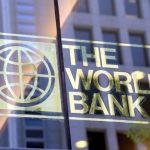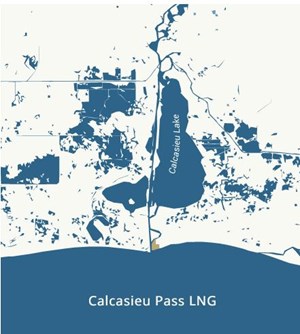Royal Dutch Shell has disclosed that it does not have plans to declare force majeure on Bonny Light exports after a fire in an area around a key pipeline. A force majeure is usually declared to protect an oil exporter against any liability with buyers because of its inability to meet obligation. Shell stated that the Nember Creek Trunk Line (NCTL) had not been impacted by a fire, having been shut since February 28, 2019.
It stated: “The NCTL is one of the two key pipelines that transports oil from various fields to the Bonny Light export terminal. Shell’s local subsidiary SPDC operates exports from the terminal.”
Meanwhile, Aiteo Group has commenced investigation to ascertain the cause of the fire that raked its operations in Nembe Creek, Bayelsa state. In a statement sent to Vanguard, the company stated: “On 2 March 2019, a suspected explosion occurred within the vicinity of Nembe Creek Well 7, behind Mile 1 Community in Bayelsa State, which is not too far from Nembe field logistics base (FLB).
“Despite initial challenges, our operations team were able to access the well head area when the fire had completely died down on early hours of 2nd March.”
It stated: “Preliminary investigations confirm that there were no fatalities; human incidents or damage to community property. All the wells and facilities in the immediate vicinity have been inspected and secured. This incident did not occur at or involve any part of the NCTL or other pipelines. It is important to note that prior to this incident, all facilities have been shut down since 28 of February 2019 due to NCTL outage.
Accordingly, any account suggesting that this incident arose from or affected any pipelines is wholly inaccurate and misleading.”
The company added: “Full investigations to determine the cause of the fire and, in particular, to determine whether this may have been caused by third-party infractions, remain ongoing.
These investigations are being pursed with the utmost urgency and are have been given the highest priority. “We are continuing to work with all the relevant authorities to restore full functionality to all the relevant installations and affected areas. In the time being, we express our gratitude to all our stakeholders for your continuing support and understanding whilst urging calm and vigilance. As becomes necessary, we shall continue to share information on these developments in due course.”
Current output
Investigation by Vanguard showed that Nigeria currently produces about 2.0 million barrels per day, bpd, including Condensate. The Ministry of Petroleum Resources report disclosed that Nigeria’s output dropped from 2,081,936 barrels per day, bpd recorded in December 2018 to 1,999, 292 bpd in January 2019.
Shell’s experience
It showed that some oil companies, including Shell Petroleum Development Company have continued to record oil theft and vandalism despite the relatively calm in the region. In its latest ‘briefing notes’, Shell stated: “Security in parts of the Niger Delta remains a major concern with persisting incidents of criminality, kidnapping and vandalism as well as onshore and offshore piracy. Although there has been no damage to key oil and gas infrastructure caused by militant activity since November 2016, the security situation remains volatile in this region of the country.
“Operations at the SPDC JV’s Forcados Oil Terminal (FOT) was disrupted until late May 2017 while repairs to the export line were completed after three sabotage incidents in 2016. This resulted in loss of revenue, particularly for domestic producers who rely on the FOT for export.
“Facilities operated by both indigenous and international oil and gas companies continue to be vandalised by attacks and other illegal activities such as crude oil theft. This led to lower oil and gas production in 2016 particularly for indigenous producers and incidents of environmental contamination. The consequences also included a loss of revenue for the Federal Government of Nigeria and disruptions to gas supply to power electricity for industry, businesses and public-sector services.
“The safety of staff and contractors in Nigeria remains the top priority. Shell Companies in Nigeria aim to mitigate security risks that may impact people, the environment and assets – thus operations are carried out only where it is safe to do so. “We continue to deploy in-country expertise to mitigate security risks around our operations.”









